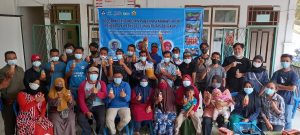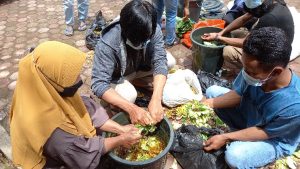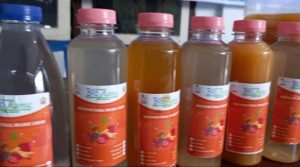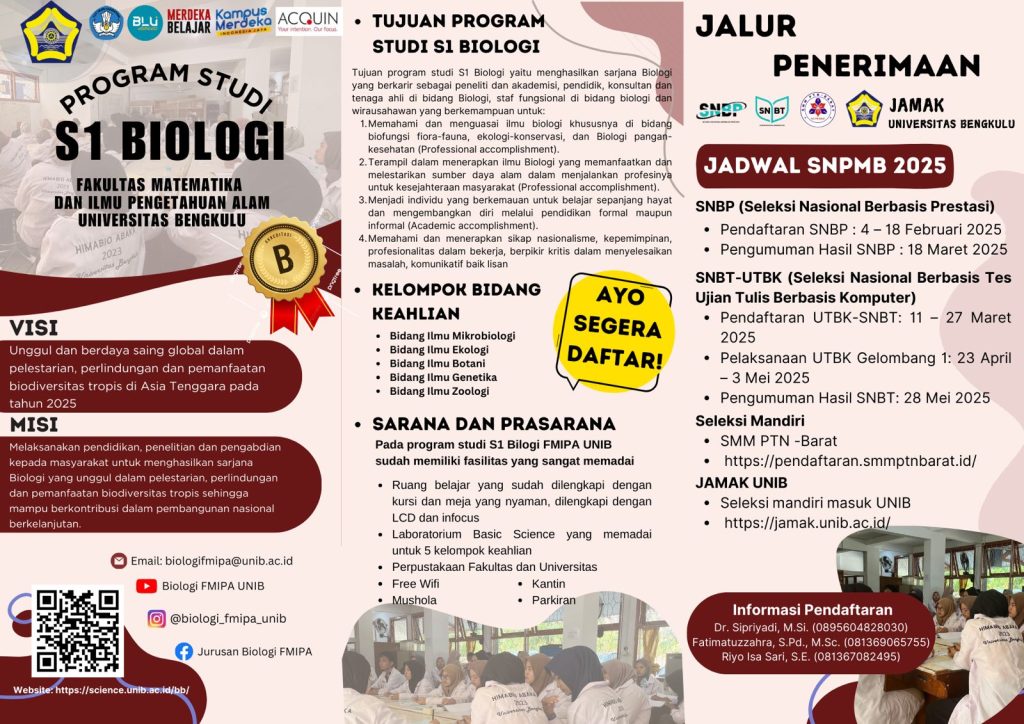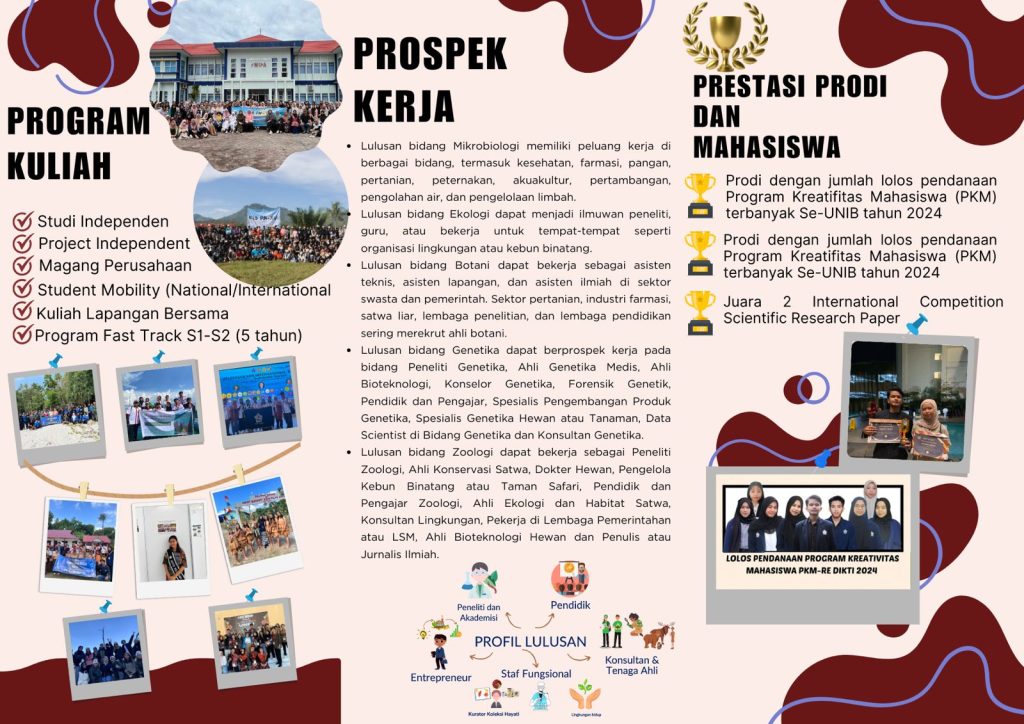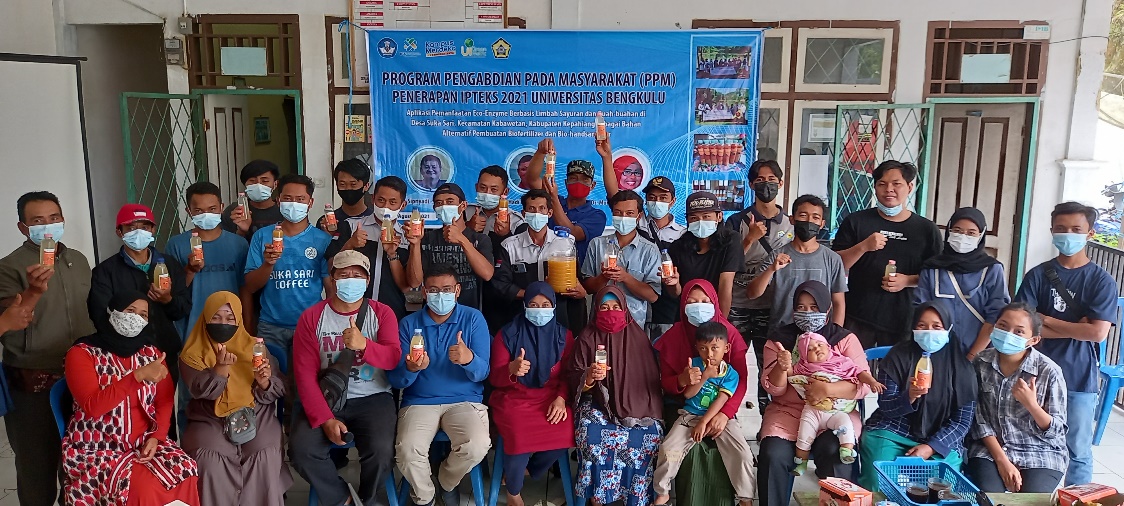
Utilizing Vegetable and Fruit-Based Organic Waste, Lecturers of Biology Department, FMIPA UNIB Conduct Community Service in Suka Sari Village to Make Eco-enzyme
“Ecoenzyme, a multifunction liquid”, that’s the jargon/slogan that was spoken loudly and vigorously by FMIPA UNIB Biology lecturers, local communities and village officials during a Community Service (PPM) activity in Suka Sari Village, Kabawetan District, Kepahiang Regency on Thursday, August 19, 2021. This activity was also participated in and assisted by several students and alumni of Biology FMIPA UNIB. Maybe for most ordinary people the term “Ecoenzyme” still sounds unfamiliar or has never imagined what this Ecoenzyme looks like. So, before discussing further about Ecoenzyme, let’s look at the following explanation.
What is the Ecoenzyme?
Based on the community service proposal written by Dr. Risky Hadi Wibowo, S.Si., M.Si, Dr. Sipriyadi, S.Si., M.Si from the Department of Biology, FMIPA, UNIB and Prof. Dr. Morina Morina Adfa, S.Si, M.Si from the Department of Chemistry, FMIPA, UNIB, “Ecoenzyme” can be interpreted as the result of fermentation which is a simple organic solution of fresh vegetable waste, fruit waste with the addition of brown sugar and water using selective microorganisms such as yeast and bacteria that create liquids such as vinegar with natural proteins, mineral salts, and enzymes that make it very versatile to utilize inside and outside the home (Neupane and Khadka, 2019).
How to make the Ecoenzyme?
Based on the presentation made by Dr. Risky Hadi Wibowo, S.Si., M.Si, the ingredients used to make Ecoenzyme are relatively easy and can be found around our neighborhood, namely vegetables left over from the harvest / remaining cooking period (such as mustard greens, cabbage), fruit peels such as bananas, oranges, papayas and brown sugar. Then all the ingredients are mixed in a ratio of 3 (organic waste): 1 (brown sugar) : 10 (water) and filled as much as 2/3 of the total volume of the Eco-fermenter, or commonly also referred to as the Ecoenzyme manufacturing container. During the service activity, Ecoenzyme was made together with local people using Eco-fermentor containers with a volume of 20 and 60 liters, only filled with 2/3 of it in a ratio of 3:1:10. Then all the ingredients that have been weighed and finely sliced are put into the Eco-fermenter, stirred so that the ingredients are evenly mixed, and then tightly closed. The cap is modified by making a hole to insert a small hose connected to a plastic bottle to remove the gases produced from the Ecoenzyme fermentation process. The fermentation process is carried out for 3 months, after 3 months the Ecoenzyme liquid product is ready to be harvested through a tap that has been installed in the fermentation container.
What are the benefits of Ecoenzyme?
The results of ecoenzyme fermentation have many benefits, including being able to be used as raw materials for making Handsanitizers and Biofertilizers. Ecoenzyme as a handsanitizer is very suitable for use, especially during the current pandemic, besides being useful for minimizing disease-causing germs on the hands, it also has a distinctive aroma of fragrant fruits such as fresh sour aroma. This can also minimize the use of chemicals in our body, because this Ecoenzyme-based Handsanitizer is made using natural ingredients. Ecoenzyme as a biofertilizer also has many benefits for plants and minimizes the use of chemical fertilizers in the long term which can damage fertility and nutrients in the soil, especially the Kepahiang area which is the center of vegetable and fruit plantations.
According to Dr. Risky Hadi Wibowo, S.Si, M.Si, “Making Ecoenzymes like this can certainly increase people’s knowledge and ability to apply this Ecoenzyme product. It is hoped that this PPM activity can increase public awareness to better utilize organic waste in the surrounding environment which is usually just left alone. It is not impossible that one day this Ecoenzyme can be used to improve the creative economy of the people of Suka Sari Village”.
Before this service activity was carried out, the implementation team had first studied and attended the Ecoenzyme making training for approximately 6 months which was incorporated in the UI Green Metric World University Rankings Network (UIGWURN) which consisted of the collaboration of several well-known universities in Indonesia such as Bengkulu University, North Sumatra University, Syiah Kuala University, Padang State University, UIN Sultan Thaha Jambi, UIN Syarif Hidayatullah Jakarta, Padjajaran University, Kuningan University, UPN Veteran Yogjakarta, Brawijaya University and Surabaya State University. This activity itself is one of the science-based community service activities (PPM) programs that received funding from the Institute for Research and Community Service (LPPM) Bengkulu University.
